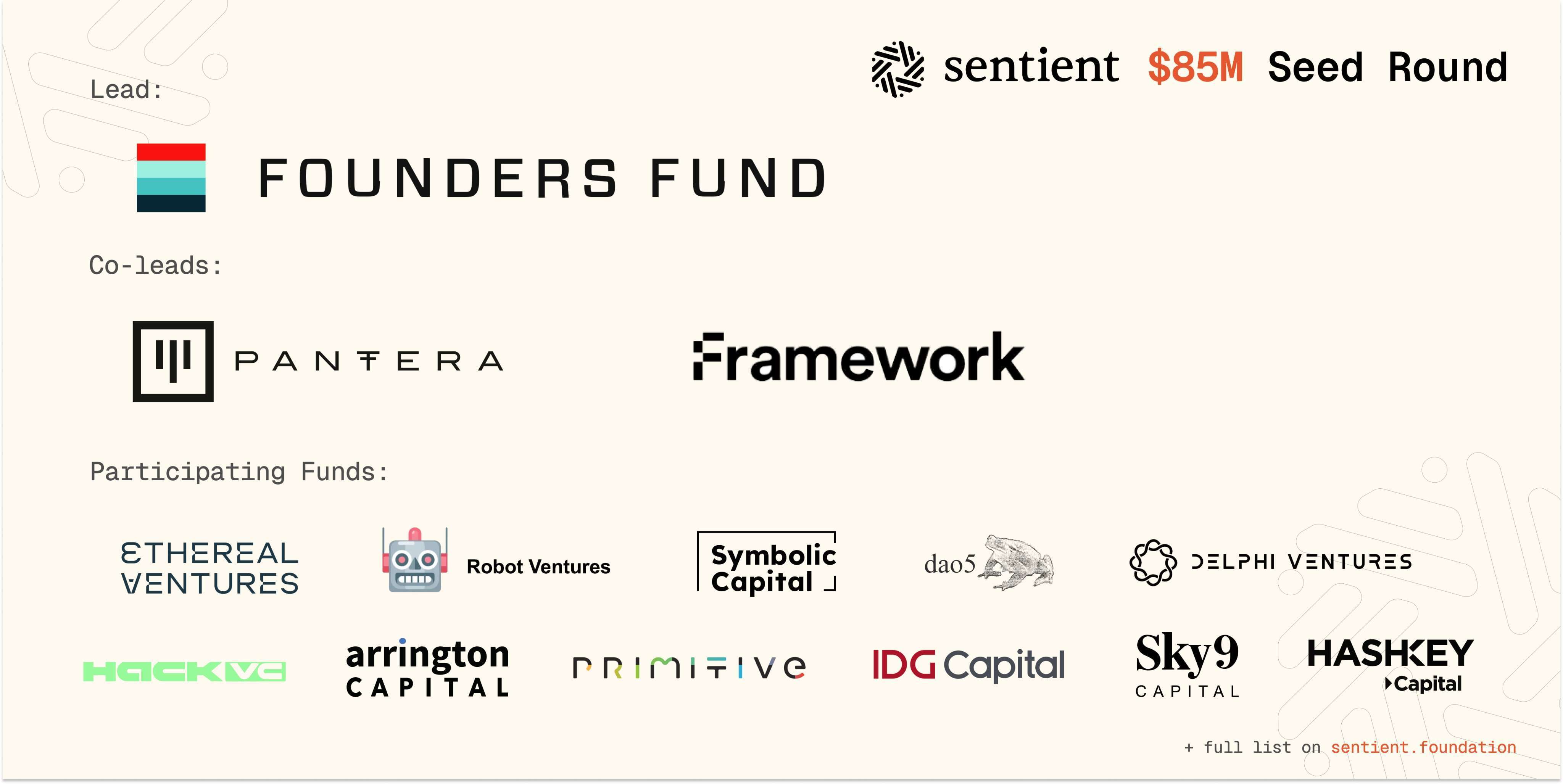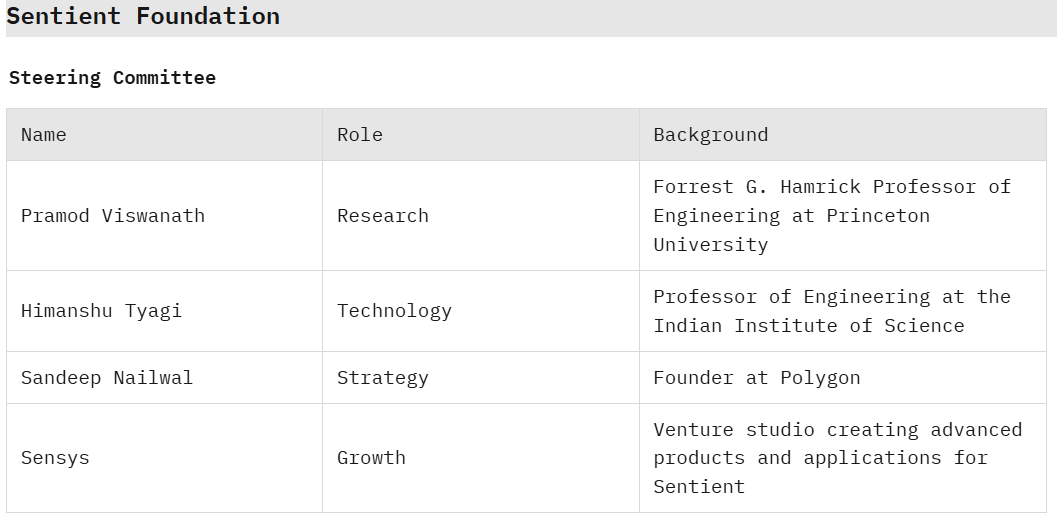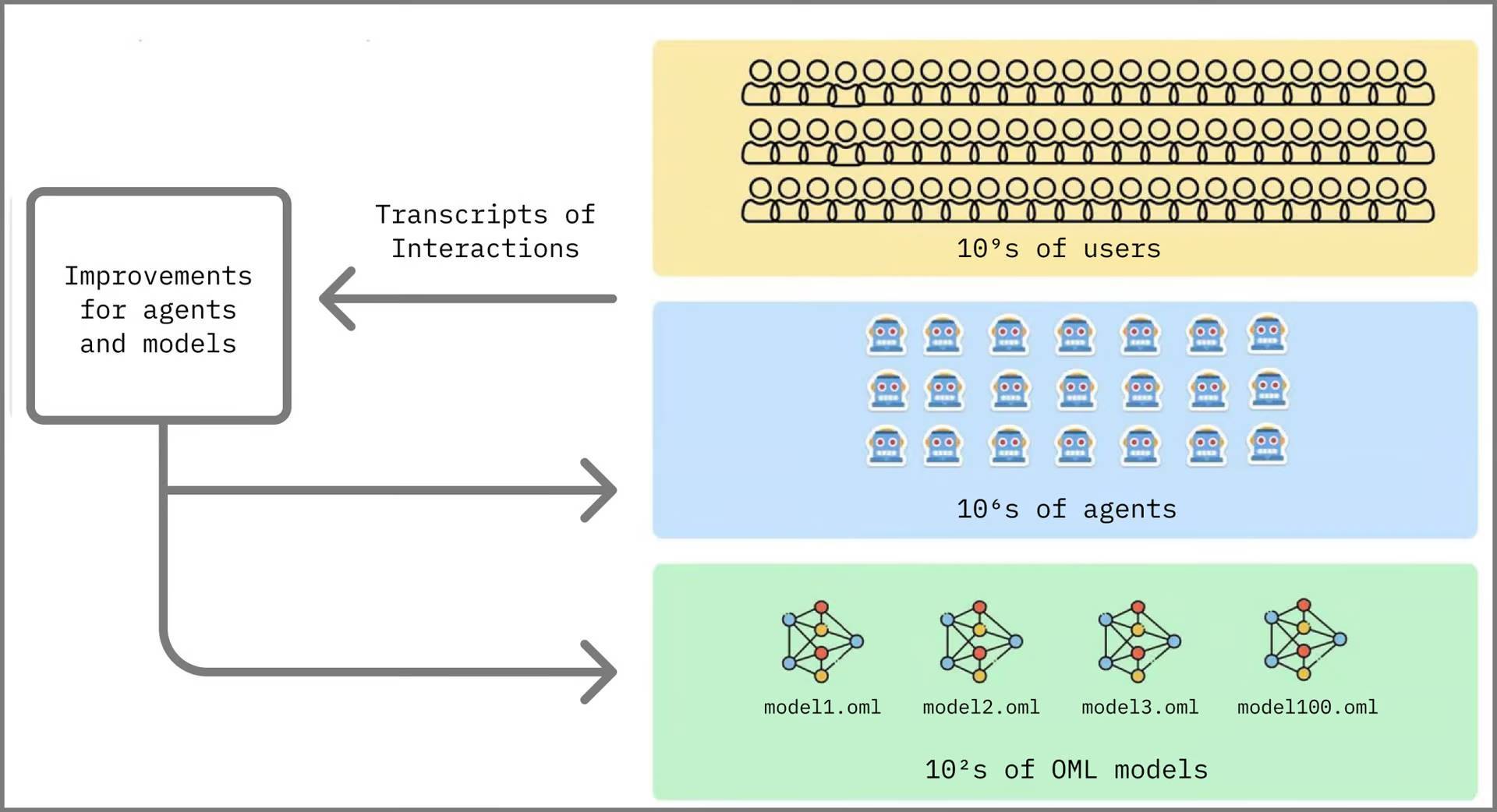
The Next Trillion Dollar Wave - AI Narrative in Crypto: Who Are the Top Players?
Dec 12, 2024 21:40
Written by TechFlow
The need for AI in the crypto realm is still up for debate, but it seems that the crypto world is increasingly woven into the narrative of AI.
"No AI, no crypto" has become the hallmark of this cycle. Moreover, the AI storyline is resonating more and more with investors.
On July 2nd, Sentient, an open-source AI collaboration platform, announced an impressive $85 million in funding. The round was led by leading venture capital firms such as Founders Fund, Pantera Capital, and Framework Ventures, with additional participation from Ethereal Ventures, Robot Ventures, Symbolic Capital, and Delphi Ventures—marking another wave of significant investment.
In this 'unconventional bull market,' this massive seed funding round is notably eye-catching. The last AI phenomenon to attract such attention was possibly Bittensor?
Is Sentient truly a groundbreaking venture, or just another hype-driven money magnet? Let's unpack this.

According to a tweet from Polygon co-founder Sandeep Nailwal, Sentient's inception was sparked during a discussion he had with EigenLayer founder Sreeram Kannan about the future of crypto and AI. Sreeram Kannan later shared the insights from this conversation with Princeton University professor Pramod Viswanath, co-inventor of the technology underpinning 4G wireless standards (Flash OFDM), and Himanshu Tyagi, a professor at the Indian Institute of Science. Their discussion coincidentally matched the professors' research interests. Fueled by this synergy of ideas, Sentient was officially launched.

Interestingly, of the four key contributors to the project, three are Indian, while several of the investing institutions were founded by Chinese entrepreneurs. It appears that India and China are joining forces to support and scale this venture—could this be the start of something big?
With substantial funding and a pool of talent, what goals does this Indo-Chinese "AI blockbuster" have set for this cycle in the crypto AI space?
Our review of the project's materials suggests that the full launch of this Indo-Chinese collaboration is still on the horizon; currently, we're only seeing the teaser.
Today, AI technology is dominated by a few corporate giants, and there's a lack of strong incentives for developers to engage in open-source AI development. As AI technology advances, open-source developers are not supported by long-term benefits, and achieving greater development outcomes requires collaborative contributions. Clearly, the state of open-source AI development is more complex than one might imagine, especially when trying to compete with the powerful AI tools developed within corporate monopolies.
Yes, AI ought to be open and free, but if adhering to open-source principles means developers struggle to make ends meet, then perhaps the fight against monopolies needs to be deferred.
Sentient officially identifies itself as the "Open AGI Foundation," with a mission to propel AI innovation through a community-driven approach.
For this purpose, Sentient is planning to create an AI platform on Polygon Agglayer that allows developers to collaborate and monetize their contributions. This setup not only facilitates rapid cooperation among developers but also enables them to monetize their input. By offering these incentives, Sentient aims to foster better and broader development of Open AGI.
In pursuit of a platform that welcomes everyone, Sentient has launched a unique hosted AI model termed "OML", standing for Open, Monetizable, and Loyal.
This framework is intended to ensure that the platform maintains openness, the ability to monetize, and loyalty to its community during usage. This strategy aims to support a sustainable and collaborative ecosystem for AI development.

The Sentient testnet is set to go live this quarter, with a comprehensive development roadmap outlined in the official documentation. For the short to medium term, the focus is on ramping up the Sentient AI platform alongside community engagement (kicking off with the community’s first event), developing blockchain protocols, enhancing the ecosystem, and setting standards for the OML model. Looking further ahead, the long-term objectives aim to foster community-driven AI models, support the future of open AGI through OML, and introduce innovative incentives for AI developers.

Sentient makes a big entrance with bold ideas, but the notion of incentivizing contributions isn't novel in the Web3 AI scene—Sentient isn’t breaking new ground here. Despite its hefty funding, there has been little buzz around the project until now, and Sentient is still in the pre-launch phase without any products on the market.
The reason many institutions are pouring money into what is essentially still a blank slate might largely be due to trust in Sandeep Nailwal’s leadership. In this unconventional bull market, money tends to flow towards projects with compelling narratives, reputable teams, and robust backing. The AI+Polygon combo also helps justify the investment to stakeholders. Clearly, as the stakes increase, it won’t be the VCs themselves picking up the tab at the end.
After numerous so-called "blockbuster" rounds, it's becoming evident that crypto investments are about backing the right people, and project development is all about strategic alliances.
It's challenging to determine whether this approach is merely a cookie-cutter strategy to earn money effortlessly, or a calculated and courageous bet on an authentic technological trend.
But in this market, as long as the hype continues, it's deemed visionary and just; any declines are quickly labeled as scams or vaporware.

What remains to be seen is how far Sentient will really go in its commitment to 'sustain and improve AI development and personnel security.' Whether it can truly stand out from its competitors, capture the fleeting attention of users, and keep us engaged is something we’ll have to keep an eye on.
Recommendation
Initia
Initia: Connecting All Rollups to Build a Layer 1+ Layer 2 Multi-Chain Interconnected World
Nov 11, 2024 15:24

Exploring Kontos: Simplicity Redefined, a Single Gateway to Seamless Blockchain Integration
Jul 07, 2024 14:32
BTCFi
Comparing Bitcoins Top 4 Scaling Solutions: Which Will Unleash BTCFis Trillion-Dollar Potential?
Nov 11, 2024 15:15